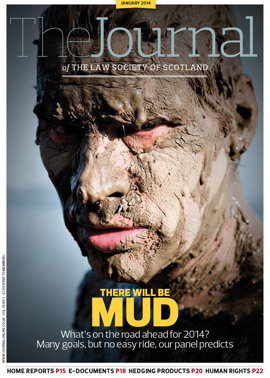Rights: a bold agenda

Judging by most media coverage, supporters of human rights in the United Kingdom today are very much on the defensive. Conservative ministers, egged on by the popular press, appear determined to represent the European Convention, and the Court of Human Rights, as having departed from their original aims and taken on a life of their own, at the expense of democratically elected parliaments.
All that with a view, of course, to pushing the electorate towards accepting that the UK needs to reassert its supremacy, of Parliament and domestic courts, against decisions of the Strasbourg court – and if, some at least are asserting, that requires the UK to withdraw from the Convention, it should take that step.
That is not a favourable backdrop against which to launch a National Action Plan for Human Rights, bearing to be “a roadmap for the realisation of all internationally recognised human rights”, whether those of the Convention or to be found in the UN treaties and declarations. Yet that was the step taken by the Scottish Human Rights Commission on 10 December, International Human Rights Day, when it published its 48 page, four year programme of targeted outcomes and priorities for action through to December 2017.
While SNAP (Scotland’s National Action Plan) has no counterparts elsewhere in the UK, the concept of such a plan was adopted by the international community 20 years ago (five years before our Human Rights Act), and, the Commission tells us, such plans have since been adopted in about 30 countries, including New Zealand, Australia, Sweden, Spain, Finland and South Africa. The Netherlands launched its own Action Plan on the same day as Scotland.
Outcome-based
Though much of the document is couched in the language of concepts such as empowerment (of individuals), integration (of human rights into public services), and accountability, it would be a mistake to regard it simply as some abstract statement of principles. Nor is it something that will be realised with a merely superficial approach. Professor Alan Miller, chair of the Commission, emphasised at the launch that SNAP is “neither a wish list nor a tick list”, but a “transformational programme of action for sustainable change”.
It has also taken a lot of work to bring it to this stage. Developing SNAP saw the Commission collaborating with a “coalition” of organisations, including the Scottish Government, local authorities, the NHS, Scotland’s Commissioner for Children and Young People, Amnesty International, the Scottish Council for Voluntary Organisations, and trades unions. The four year exercise included a research review by the Commission, published as a precursor to SNAP, which concluded that while Scotland has a relatively strong legal and institutional framework for human rights, actual outcomes for people often remain inconsistent. Key areas of concern include care, disability rights, health, criminal justice and business (see Journal, November 2012, 20).
What, then, does SNAP contain? Structured around three outcomes (in effect, putting rights into practice, tackling injustice and exclusion, and giving effect to Scotland’s international obligations at home and through international engagement), it lists nine priorities for action involving a number of important commitments from Government and public agencies.
These commitments include:
- a programme of work to place human rights at the heart of the integration of health and social care, and of service delivery;
- Police Scotland identifying opportunities to further embed human rights within the structures and culture of policing;
- the Scottish and UK Governments working with Scottish businesses and the Commission to develop an action plan to implement the UN Guiding Principles on Business and Human Rights;
- NHS Scotland promoting a human rights approach to the reduction of health inequalities;
- local and central government working with the NHS and others to pursue a human rights-based approach to independent living;
- the Scottish Government ensuring that human rights are central to reform of the criminal justice system in Scotland;
- the Government exploring the potential benefits of further incorporation of human rights treaties into the law of Scotland.
Across the board
In response to my question about the framework of rights against which SNAP has been devised and will be tested, Professor Miller confirmed that it covers the whole breadth of UN treaty obligations in addition to those of the European Convention, giving the same status to all rights. The Parliament has given the Commission a much broader remit than ECHR compliance, he pointed out, and SNAP has been drafted bearing in mind the periodic review process to which the UK is subject in relation to its UN obligations. These obligations are “in the DNA” of SNAP, and are becoming ever more relevant as Government austerity programmes continue.
A flavour of SNAP’s ethos can be seen in this passage: “Even in times of austerity, human rights require that no one should be left in a situation that undermines human dignity, that priority should be given to those in the most marginalised situations, and that any roll back in the realisation of rights has to be carefully justified, with the progressive realisation of economic, social and cultural rights being supported by the maximum of available resources… SNAP provides an opportunity to consider best practice in integrated human rights and equality impact assessment and human rights-based budgeting.”
Further, in addition to using new technologies to enhance people’s awareness of human rights and participation in decision making, “SNAP will also seek to ensure protection from disproportionate interference with private life and from abuse in the use of technologies such as CCTV, email, smartphones and social media”.
Government commitment
Although some of the Scottish Government’s justice reforms have been and remain controversial, to give the Government its due, the launch was attended by Deputy First Minister Nicola Sturgeon, who affirmed her colleagues’ commitment to “building a modern, inclusive Scotland which protects, respects and realises everyone’s human rights”, while also accepting that SNAP is not dependent on Scotland’s constitutional arrangements.
Recognising that the “hard part” was delivering the vision shown in SNAP, she added: “We will continue to work with the Scottish Human Rights Commission to make rights a reality for all in Scotland, in keeping with the importance this Government has long attached to human dignity, equality and fairness and the pursuit of social justice.”
Progress will not be left to chance. A high level leadership panel will oversee implementation and its monitoring, while action groups will be established to promote the various outcomes and a separate monitoring group “will identify indicators to track progress on delivering SNAP outcomes”. All that in addition to an annual forum on International Human Rights Day, interlinking with other monitoring systems, an annual report to the Parliament, the UN review processes, and an independent evaluation to be commissioned to inform a SNAP mark 2 to take us forward from 2017.
Speaking at the launch, Alan Miller insisted that SNAP “combines ambition with the necessary realism”. Affirming that it had been developed in accordance with international best practice and with the benefit of others’ experience, he added: “We have done it by the book, in a Scottish way. It is evidence based, participatory, and will be independently monitored.”
Comply or get out, Commissioner warns UK
“The bottom line is implement or leave. Or the whole system falls apart.” This message to the UK over the Human Rights Convention was delivered by Nils Muižnieks (Latvia), the Council of Europe’s Commissioner for Human Rights, in an address at Edinburgh University following the SNAP launch.
The UK’s current open defiance of the Strasbourg court was only one of a number of challenges listed by Commissioner Muižnieks as threats to the “post-war acquis governing human rights”. Others are the lack (or ineffectiveness) of democratic oversight of security services and of the mass scale of surveillance, broader “democratic backsliding” such as in Hungary, where membership of the EU and Council of Europe has failed to cement rights, Russia with its threats to free expression and to gay people, and Greece, with the rise of the Golden Dawn movement. Even if the UK is the only country to have pushed its defiance so far, he added, others are watching.
The Commissioner also warned of the threat posed by the scale of the current migration and refugee crisis across Europe, fuelled by the Syrian conflict. Bad national and European policies are feeding into racism, encouraging criminal gangs and far-right movements; and there is no alternative, he claimed, to a European-level migration policy, “or southern states will continue to pursue policies at odds with human rights”.
But Muižnieks did identify some hopeful trends, such as the European Union’s accession to the European Convention, which would mean “greater coherence” in the system, and the role played by human rights defenders in non-government organisations, including those involved in SNAP.
In this issue
- The DCFR, anyone?
- Cloak and dagger in cyberspace?
- One person's entertainment
- Scouting for professionals?
- Reading for pleasure
- Opinion column: Alan McIntosh
- Book reviews
- Profile
- President's column
- Working smarter, working harder
- Hang tough
- At home with home reports?
- E-missives: what now?
- Hedges: a financial plague
- Rights: a bold agenda
- Timetable twist
- Overprovision: what next?
- Sustainability is the key
- LLP rules unveiled
- Relocation: locking the stable door
- Scottish Solicitors' Discipline Tribunal
- Island futures
- An onerous obligation?
- What's in a name?
- How not to win business: a guide for professionals
- Merging: a safe partner?
- Ask Ash
- From the Brussels office
- Law reform roundup






